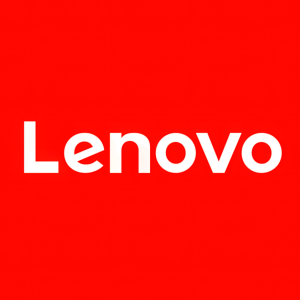Lenovo Launches the Kind City: Interactive Global Collaboration Encourages Empathy and Creates a Future Built on Kindness
Lenovo has launched the Kind City project, aiming to transform urban environments through empathy and smarter technology. This initiative features contributions from notable figures like Tan France and Gitanjali Rao. The project serves as a crowdsourced public census and encourages global participation to create a more inclusive city blueprint. Recent research indicates a significant 'Kindness Gap' among city dwellers, where 97% find kindness essential, yet 37% feel their cities embody this. Lenovo seeks input from the public until November 15 to establish fundamental principles for a kinder future.
- Launch of the Kind City project aims to foster empathy and inclusion in urban environments.
- Engagement of renowned thought leaders enhances the project's credibility.
- Research highlights a significant opportunity to address the 'Kindness Gap' in cities, suggesting public interest in improving community dynamics.
- Only 37% of respondents feel their city is kind, indicating a widespread perception of inadequacy in urban kindness.
- Less than 20% believe policymakers prioritize kindness in their decisions.
Insights
Analyzing...
The initiative features world-renowned thought leaders, including British-American fashion designer and philanthropist Tan France, 2020 TIME Kid of the Year
RESEARCH
By championing empathy in society, the project strives to encourage stronger, more inclusive communities made possible through smarter technology, and restore kindness in places where citizens feel increasingly disconnected.
Lenovo’s Kind City is the biggest crowdsourced public ‘census’ to imagine and co-author a blueprint for a city of the future built on kindness. It’s mission? To bring a more empathetic future to life through insight from global research, a public invitation to participate, and an interactive podcast featuring city dwellers and some of the world’s brightest minds.
“We believe the Kind City project will be the blueprint for mapping a kinder and better future,” said
Kind Council Formation and Interactive Podcast
Bringing together leading thinkers and global experts in their fields, Lenovo’s Kind City is steered by a panel of world-renowned visionaries who make up the project’s “Kind Council.” This includes British-American fashion designer and philanthropist Tan France, 2020 TIME Kid of the Year and inventor
The group has collaborated on a choose-your-own-path podcast to discuss the fundamentals in achieving a Kind City, such as inclusion, trust, sustainability, dreams, and opportunity.
As the backbone of the entire initiative, the innovative podcast also explores powerful conversations and incredible stories with voices less commonly heard in futurism. Listeners can navigate from multigenerational living in the
The insightful and interactive podcast encourages listeners to become part of the discussion while giving them the opportunity to navigate an audio journey personalised to their interests. More than 20 stories, discussions, and interviews were captured from across the globe, from
The podcast features NGO and charity partners from around the world, showcasing their efforts to support city residents. Lenovo will work directly with these organizations over the coming months and identify the most impactful ways to collaborate, from workshops on technology solutions with Lenovo experts, to device donations and financial support.
The Kind City project comes on the heels of fresh research conducted by Lenovo that dives deep into the lives of city dwellers and their perspectives on the quality of life in their current cities.
Surveying more than 5,000 city dwellers across five countries (
Research revealed traditional organizations and government are falling short on prioritizing kindness, leaving it to local neighborhoods and communities to shoulder more than their share of the responsibility.
Ultimately a major ‘Kindness Gap’ exists globally in cities with
While the study finds respondents have a somewhat positive impression of the quality of life where they live, they also draw a clear connection between greater kindness in their cities and many tangible benefits, for example, improved mental and physical health; feelings of inclusivity and pride; greater enjoyment and flexibility, that could unlock even happier lifestyles. A significant opportunity for improvement in the face of these challenges exists, including:
-
Most respondents (
55% ) believe the quality of life in their city is either not getting better or staying the same. In cities across the globe, majorities say that there is room for improvement in their general living and working conditions.
-
City residents have reservations about how much the officials that represent them consider kindness when making decisions for the city. Less than one in five (
17% ) believe their policymakers strongly consider kindness and empathy when it comes to their city.
-
Most residents think technology will be a pivotal solution (
83% ) for promoting and employing kindness in their cities, most notably inBrazil (88% ).
What the kindness gap presents is a real opening to the private sector to enable and empower greater kindness and empathy. More than ever, there’s an urgency to work toward a more equitable future—and we can use the power of technology to make this come to fruition.
Get Involved: Become a Kind City Citizen
The initiative is calling upon people from all walks of life, across every major city to voice their vision of what a kinder city should be.
Lenovo invites the general public to share their personal vision of an empathetic and inclusive community by becoming Kind City citizens, which they can do by simply completing the following statement: “The future of the Kind City will…” on Lenovo’s microsite housing the project KindCity.com.
All responses received through
About Lenovo
Lenovo (HKSE: 992) (ADR: LNVGY) is a
View source version on businesswire.com: https://www.businesswire.com/news/home/20211026005167/en/
Source: Lenovo







